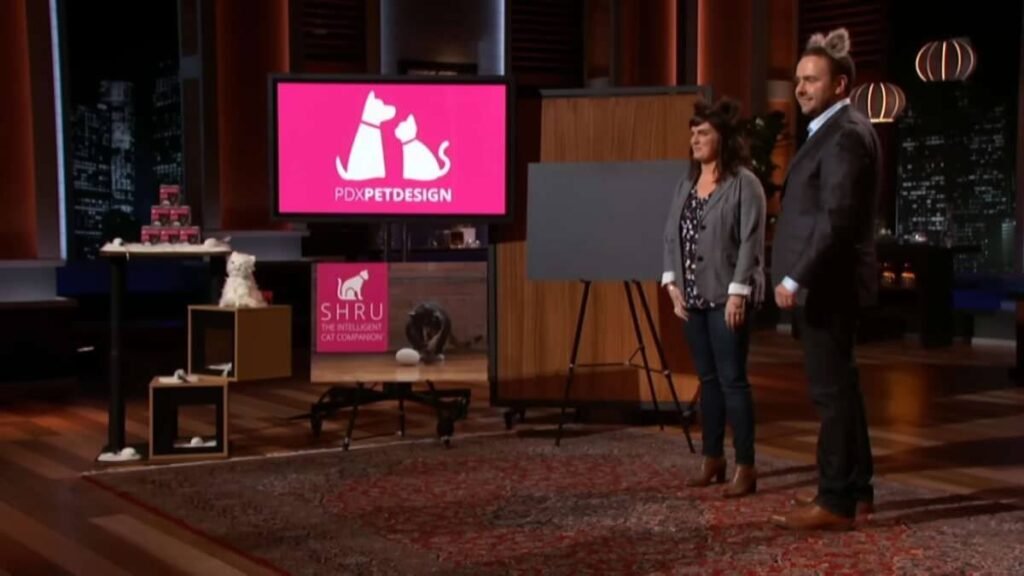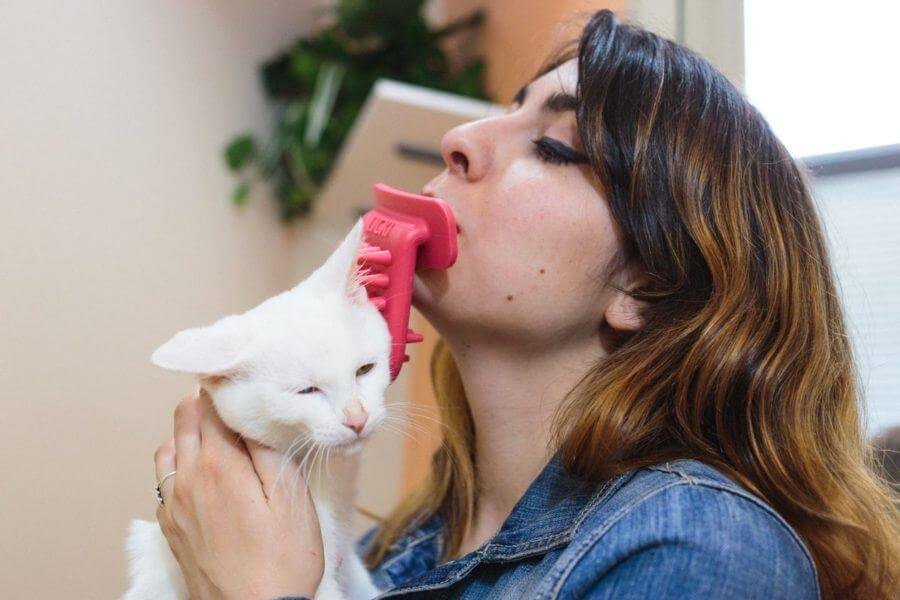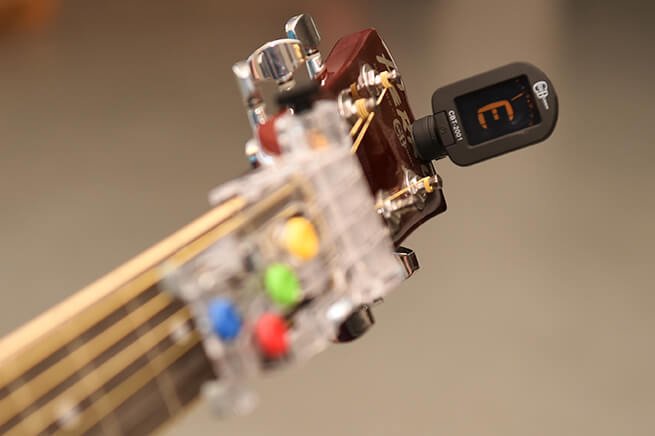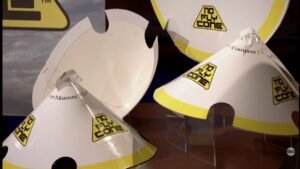Forget the Shark Tank fairy tale: Not every company walks out a millionaire, and not every viral moment leads to a billion-dollar exit. But most people don’t want the glossy pitch—they want the unfiltered version. So let’s talk about PDX Pet Design, why their Shark Tank pitch is still remembered, and what that means if you’re grinding out your own dream.
Contents
ToggleWhat Is PDX Pet Design?
You know how so many cat products just scream boring? Not Tara and Jason O’Mara. This husband-wife team from Portland, Oregon, took their total obsession with cats and built PDX Pet Design: a company set on making cat gear with actual attitude.
Tara and Jason were fed up with generic toys. So they created stuff that sparks conversation—both with your cat and everyone watching you use it. Founders like them don’t wait for permission. They see a weird idea, they run at it, and—here’s the important bit—they have the guts to get grilled on Shark Tank in front of millions.
The Big Pitch on Shark Tank
Season 8, Episode 12. Picture it: PDX Pet Design walks into the tank, cool and prepared, asking for $300,000 for 15% equity. That’s a $2 million valuation on the table, which—and let’s be real—always gets the Sharks raising an eyebrow.
Their show-stealers? The SHRU, a high-tech cat companion toy, and the Licki Brush. The Licki Brush is exactly what it sounds like: a brush that lets you lick your cat with your own mouth via a silicone tongue. Robert Herjavec actually tried it while the whole panel cracked up. For pure Shark Tank moments, this was one of the funniest.
But behind the laughs was a real sales pitch. These founders didn’t just come to entertain; they came to win—or at least make an impact.

Sales Numbers and Performance Before Shark Tank
Let’s get specific—because you can’t bluff the Sharks with wishful thinking. Tara and Jason rolled up with real numbers:
- $250,000 in sales from the SHRU toy.
- $52,000 in Licki Brush sales.
- Total: Just over $300,000 before the episode aired.
That’s nothing to sneeze at, especially for a niche side hustle. Those numbers meant proof of concept, and the Sharks listened up—at least at first.
But—and this is where a lot of founders get tripped up—it wasn’t the sales that set off the Shark alarms. It was how those sales stacked up against that $2 million valuation.
What Is PDX Pet Design’s Net Worth?
Here’s where things get spicy. Asking for $300K at a $2 million valuation is gutsy with only $302K in total sales. The O’Maras had confidence, maybe a little too much. Kevin O’Leary scoffed outright, and you could see the other Sharks doing mental math—and not liking the answers.
On paper, that math didn’t add up. In the real world? Maybe it’s how you sell the story. Maybe it’s momentum—or just viral luck (think Scrub Daddy or Bombas).
Did SharkWorth ever publish an exact post-Tank net worth for PDX Pet Design? No. But smart money says their actual valuation stayed far south of that $2 million number. Still, they set a high anchor, and that keeps negotiations interesting—even if, sometimes, it scares your investor right off the deal.

Shark Reacts: Who Bought In and Who Walked Out?
Let’s break it down clean:
- Mark Cuban: Out—saw right past the novelty and doubted the mass-market appeal.
- Lori Greiner: Out—she’s the queen of QVC, but this was just too niche.
- Daymond John: Out—too early, not enough evidence the crazy cat crowd would go big.
- Robert Herjavec: He laughed (a lot), but in the end, he was all-out.
- Kevin O’Leary: Out—he’s Mr. Wonderful, but valuations that stretch belief get his NO faster than anything.
None of the Sharks put up cash. They didn’t even try to negotiate for more equity, which pretty much tells you where their heads were. The products sparked curiosity. The numbers and the niche? Not so much.
Honestly, I’ve seen plenty of pitches where the Sharks passed but the real fight started after the cameras. In this case, the O’Maras got the no, but also got America’s attention.
Life After the Tank: Did They Sink or Swim?
Here’s the part most shows skip. Tara and Jason walked off set empty-handed—no investment, and more questions than answers. Did they crumble? Nope. Their exit interview should be required viewing for any side hustler: We also have backup plans…we are going to build this company and so this isn’t the end for us.
A lot of founders fold too early. These two just took their reality-check, adjusted strategy, and kept selling. Sometimes, losing the deal isn’t the failure—quitting when you face the first hard no is.
Recent Moves and Last Seen in the News
As of May 2024, PDX Pet Design is still referenced in Shark Tank roundups and where are they now articles—including SharkWorth, which keeps tabs on pitch outcomes. That means the products—especially the infamous Licki Brush—are selling somewhere, somehow.
Their Shark Tank episode became viral gold in later seasons, with fans recalling Robert Herjavec’s licking demonstration as an all-time classic. Social media still loves the cringe and the genius. If you Google cat tech, the SHRU and Licki Brush still show up, but you’ll need to dig a little for updates on growth or new launches.
Are they at Chewy, Amazon, or big-box stores these days? Licki Brush and SHRU get stocked online and via their original website, but you’re not going to catch them on every shelf—not yet.
Key Lessons for Entrepreneurs from This Pitch
Here’s the truth, founder to founder:
1. Valuation Matters: Don’t anchor too high on the dream. Know your numbers, your margins, and what comps in your space get. The Sharks want deals, not fantasy math.
2. Quirk Gets Views, Not Always Sales: Licki Brush broke the internet. But breaking through Walmart’s doors is a different game. Viral buzz helps, but sustained sales still need a mainstream pitch.
3. Niche Can Win, but It’s Riskier: Pet lovers are loyal and spend big, but super-niche means super-hard to scale. If you’re pitching, show the path from weird-to-every-household.
4. No Deal Isn’t the End: Shark Tank is a launchpad, not a shortcut. Plenty of great businesses grew after the no. The Shark Tank effect is real, but it doesn’t replace actual hustle or smart execution.
5. Backup Plans Save You: The O’Maras knew they might get rejected and planned accordingly. That’s what separates the hustlers from the hobbyists.
Conclusion: The Legacy of PDX Pet Design’s Shark Tank Moment
Let’s keep it real: Getting on Shark Tank is an achievement. Surviving the no and creating a business the fans still talk about years later? That’s something only a few can claim.
PDX Pet Design didn’t get a deal, but their products—especially the Licki Brush—were unforgettable. That matters in consumer brands. If you’re a founder, take the O’Maras’ grit to heart: pitch hard, listen to feedback, adapt like your business depends on it—because it does. Fame is fast. Good business is slow, deliberate, and relentless.
Fifteen minutes on Shark Tank is nice, but building a business that lives past those minutes? That’s the only win that matters.
FAQs
1. Is PDX Pet Design still in business?
They’re still referenced and their products are available online, but they’re not dominating retail shelves.
2. Did Shark Tank help boost their sales, even without a deal?
Absolutely. The episode went viral, and Shark Tank’s exposure drove fresh eyeballs and short-term traffic.
3. Where can I buy the SHRU or Licki Brush today?
You can find them online through their own site and select online pet retailers.
4. What made the Licki Brush go viral on Shark Tank?
Robert Herjavec’s live demo was hilarious and wild. The internet did what it always does—turned a weird product into a meme.
5. Why did the Sharks say no to PDX Pet Design?
Too high a valuation for too small a sales base, and concern that the niche was just too narrow.
6. Are the founders still involved with the company?
There’s no major news about an exit, so it’s likely Tara and Jason are still steering the ship.
7. What should new entrepreneurs learn from their pitch?
Balance confidence with realism, own your numbers, and have backup plans ready in case the answer is no.
8. Have other similar pet startups succeeded after Shark Tank rejections?
Yes. Many pet brands that didn’t land Shark money went on to build cult followings and lasting direct-to-consumer businesses. Think of it as a brutal but often real launchpad.
Does Shark Tank make or break a business? Not usually. But for PDX Pet Design, it handed them a spotlight—and what they did after is the part every founder should actually study. If you want more Shark Tank founder breakdowns, check out SharkWorth for in-depth looks at what happens after the pitch.










